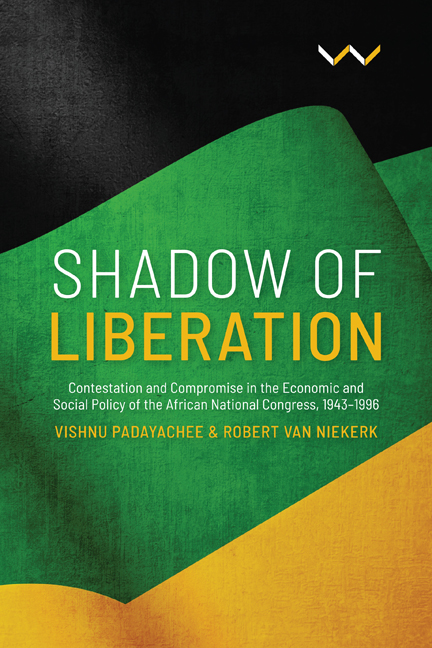 Shadow of Liberation
Shadow of Liberation Book contents
- Frontmatter
- Contents
- Acronyms and abbreviations
- Preface
- Acknowledgements
- Chapter 1 The Context of Economic and Social Policy-Making in the ANC
- Chapter 2 African Claims, the Freedom Charter and Social Democracy, 1943–1960
- Chapter 3 Incarceration, Exile and Homecoming, c.1960–c.1991
- Chapter 4 Economic Policy Debates during a Decade of Liberation, 1985–1993
- Chapter 5 On the Way to GEAR, 1994–1996
- Chapter 6 Making Sense of the Economic Policy Debates
- Chapter 7 South African Reserve Bank Independence
- Chapter 8 The Politics of Health Policy-Making in the Transition Era, 1990–1996
- Chapter 9 Interpretation and Conclusion
- Notes
- Bibliography
- Index
Chapter 9 - Interpretation and Conclusion
Published online by Cambridge University Press: 20 January 2022
- Frontmatter
- Contents
- Acronyms and abbreviations
- Preface
- Acknowledgements
- Chapter 1 The Context of Economic and Social Policy-Making in the ANC
- Chapter 2 African Claims, the Freedom Charter and Social Democracy, 1943–1960
- Chapter 3 Incarceration, Exile and Homecoming, c.1960–c.1991
- Chapter 4 Economic Policy Debates during a Decade of Liberation, 1985–1993
- Chapter 5 On the Way to GEAR, 1994–1996
- Chapter 6 Making Sense of the Economic Policy Debates
- Chapter 7 South African Reserve Bank Independence
- Chapter 8 The Politics of Health Policy-Making in the Transition Era, 1990–1996
- Chapter 9 Interpretation and Conclusion
- Notes
- Bibliography
- Index
Summary
Ruling national liberation movements‚ not least in southern Africa‚ were stagnating partly as a result of internal weaknesses and largely as a result of horrific apartheid destabilisation. The social democratic tradition was a pale and rather cynical shadow of its former self. Neo-liberalism appeared to be the only show in town. Thabo Mbeki bought into it‚ and it bought into him. There was an affinity in temperament. Shock therapy was the recipe. Out of the blue‚ zap the economy with undebated‚ written in stone‚ macro policy. What's the point of policy debate when all the answers are pre-given and managerial in character? All the old isms (as someone put it) had now become wasms. Ideology was dead‚ history had ended (Cronin 2016: n.p.).
Our interpretation
Evidence from three years of research on this project leads us to argue that the narrative and the subsequent explanations for the compromises of the 1990s are far more complex than most monocausal explanations suggest. Some nascent ideas about economic and social policy can be traced back to African Claims (1943) and the Freedom Charter (1955), and to the Morogoro Conference (1969). But the intensity and contestation over such policy escalated considerably as democracy neared. As we have shown, economic and social policy debates in the transition era occurred at formal constitutional negotiations as well as through a variety of research think tanks, such as the Macroeconomic Research Group (MERG), within institutions of the state, in and through the progressive union movement and in business through various scenario-planning exercises.
So as to avoid any misunderstandings, we stress that our conclusions are based only on the areas of the research we have chosen to investigate – that is, on aspects of economic and social policy debates from 1943 to 1996. As far as formal constitutional negotiations are concerned, from Mac Maharaj, Ronnie Kasrils, Pallo Jordan and Jeremy Cronin, among others, we came to hear that other policy debates, especially over constitutional principles, security and defence, were very different and we have no reason to doubt their versions. In these (mainly political) areas, the ANC negotiating teams were better prepared and clearly emerged as ‘winners’.
- Type
- Chapter
- Information
- Shadow of LiberationContestation and Compromise in the Economic and Social Policy of the African National Congress, 1943–1996, pp. 227 - 234Publisher: Wits University PressPrint publication year: 2019


